Table of Contents
Most coffee filters are compostable, but some types shouldn’t go in your compost pile. Paper-based coffee filters are generally fine to compost. They provide carbon to your compost pile or compost bin, boosting its microbial activity. To successfully compost coffee filters, correct preparation and optimal composting conditions should be carefully followed. Balanced ingredients, moisture, and temperature are crucial factors for a nutritious compost. Dry coffee filters decompose slower than wet ones.
Home composting coffee filters is a sustainable approach, especially for households that use them daily. A cup of coffee a day produces coffee waste. With composting, it ends up in your garden and does not contribute to landfill waste.
Common composting methods like hot composting, and vermicomposting are capable of processing coffee filters. If a home compost is unavailable, consider sending your disposable coffee filters to commercial composting centers.
Unfortunately, recycling facilities do not accept coffee filters. Cellulose in wet coffee filters starts to break down after use and before the recycling process begins.

Learn more about composting coffee filters and other sustainable alternatives using this comprehensive guide.
Types of Coffee Filters for Composting
Made out of paper, most coffee filters are compostable. However, some types are better than others to compost because they do not contaminate your pile with unnecessary chemicals. Before composting coffee filters, identify what material it’s made with to ensure the best compost quality and reduce risk of composting issues.
Unbleached Coffee Filters
Unbleached coffee filters come in the natural brown color of paper pulps. Without any bleaching treatments, they are considered to be environmentally friendly. However, in the compost pile, unbleached paper products (coffee filters, paper towels, and others) decompose slower due to their high lignin content, an organic woody compound found in paper pulp.
If you want to keep your compost pile or bin strictly organic, opt to add unbleached paper coffee filters only.
Bleached Coffee Filters
Bleached coffee filters are recognizable by their white color. Manufacturers use bleach agents like chlorine to remove the natural brown color of the pulp. This way, you know that the filter is cleaned and hasn’t been used. A nutrient-rich compost pile can tolerate minimal traces of chlorine. However, the process of chlorine bleaching has negative environmental impact including air and water pollutants. In addition, some composters choose not to add white coffee filters for fear of chlorine contamination linked to bioaccumulative toxins.
Dispose of this coffee filter type elsewhere to maintain a chlorine-free compost pile.
How to Compost Coffee Filters
You can begin composting coffee filters after identifying their type (bleached or unbleached). Correct preparation and optimal composting conditions will ensure the best compost quality out of disposable paper coffee filters.
Preparing Coffee Filters for Composting
Collect your carbon-rich coffee filters every morning. You can add your used coffee filters without rinsing the filter. Coffee grounds are generally compostable and work well as nitrogen-rich green ingredients.
Cutting your compostable coffee filters into small pieces will help speed up the decomposition process. If you already have a working compost pile or bin, integrate the shredded coffee filters gradually. Spread them at the center of your compost bin, where they will break down quicker. Avoid throwing in large amounts of coffee filters because they can clump together, slowing down the decomposition of your organic wastes.
Ideally, cover your layer of coffee filters with an inch or two of top soil, potting soil, or nutritious compost to prevent your coffee filters from drying out or flying away.
Optimal Composting Conditions for Coffee Filters
A balanced mix between green ingredients and brown ingredients is needed to produce a nutritious compost. When composting coffee filters, layer the organic wastes and aim for the ideal carbon:nitrogen (C:N) ratio of 25 to 30 parts brown ingredient for every 1 part green ingredient. Treat coffee filters as carbon-rich brown ingredients like dead leaves, untreated sawdust, or wood chips. Food waste from kitchen activity such as fruit and vegetable trimmings, are excellent green ingredients.
Coffee filters will need moisture to fully breakdown. When you compost coffee filters, only add water if necessary. Maintain the pile damp but not soggy. Too much water generates an anaerobic environment that may cause unpleasant smells from your compost pile. On the other hand, a compost pile without adequate moisture has a slower decomposition rate. Ensure adequate moisture within the pile for efficient composting.
In hot compost piles, aim for the optimal temperature range between 90 and 140 degrees Fahrenheit. This specific temperature range indicates microbial growth in the compost pile, cooking the organic wastes.
These conditions ensure proper and efficient composting of coffee filters. Instead of ending up in landfills, used coffee filters can become a nutritious soil additive for your garden.
How Long Do Coffee Filters Take to Compost?
Depending on the conditions of your home compost pile, compostable coffee filters can take 6 to 8 months to fully break down. Paper coffee filters have cellulose, an organic substance found in wood pulp, that is also present in other paper products. Cellulose will decompose once contaminated with water, a process called hydrolysis.
How Coffee Filters Affect the Composting Process
Coffee filters can positively impact your compost heap as long as they are prepared correctly and you use the right type of filter. They provide carbon which acts as an energy source to sustain microbial activity.
Impact on Decomposition
Balanced with other organic matter, compostable coffee filters work well as carbon sources for composting microorganisms. Because of their fibrous and woody nature, processing coffee filters into compost takes time. Make sure to cut your coffee filters before adding them to the pile or bin. Uncut coffee filters take longer to decompose and may lead to clumping issues.
Microbial Activity
Carbon from compostable coffee filters supports microbial growth within the pile or bin. Keep your compost pile moist and turn for aeration to further boost the activity of your composting microorganisms.
Temperature and Moisture
Microbial activity supported by compostable coffee filters will generate heat. The optimal temperature range of 90 to 140 degrees Fahrenheit breaks down organic materials. Turn the pile regularly for aeration and to avoid clumping of shredded coffee filters. Similar to paper towels, coffee filters have insulating properties that help sustain your compost pile’s high internal temperature.
Coffee filters have the tendency to dry out, especially if left alone in the pile. Keep your shredded coffee filter moist to speed up their decomposition. Odor issues arise from anaerobic decomposition if your compost pile is watery. Add more brown materials like unbleached filters as they can absorb excess moisture.
Potential Issues With Composting Coffee Filters
Potential issues from composting coffee filters include clumping and possible chlorine contamination. Mismanagement of your compost pile can cause pest problems and unpleasant smells. Maintain optimal composting to minimize these risks.
Will Composting Coffee Filters Attract Pests?
In a well-maintained pile, coffee filters usually do not attract pests. However, improper maintenance and preparation of your compost heap and its other organic wastes can entice animals and insects. To prevent this issue, sustain optimal conditions throughout the composting process. You can also cover your compost to deter pests.
Will Composting Coffee Filters Cause Odors?
By themselves, coffee filters do not cause odors within the pile. Although moisture is needed to break coffee filters down, excess water generates anaerobic environment that can cause unpleasant smells. Coffee ground residues on the filter contribute to these smells if not incorporated properly in the pile. Aerating the pile and balancing its moisture levels will help prevent this potential issue.
Methods for Composting Coffee Filters
Different composting conditions are available when dealing with coffee filters. Consider the options below and find out which best suits your lifestyle and resources.
Hot Composting
Hot compost piles will highly benefit from paper coffee filters. Carbon found in these materials is an excellent source of energy for composting microorganisms. As a consequence, the microbial activity produces intense heat, ideally between 90 and 140 degrees Fahrenheit, cooking the organic wastes. For a hot compost to be successful, regular turning and temperature checks are needed. Although it produces compost faster, the laborious maintenance of hot piles may not be suitable for first-time composters.
To start hot composting coffee filters, shred them into smaller pieces and layer with other organic wastes. Balance your nitrogen-rich green materials and carbon-rich brown materials (25 to 30 parts of carbon to every 1 part of nitrogen).
Cold Composting
Paper coffee filters are also suitable for cold composting. This method requires little to no human intervention during the composting process as it allows nature to break down your organic materials. Without the hot temperatures, cold composting yields compost slower than other composting methods.
A balance between ingredients, moisture, and oxygen are needed to efficiently cold compost paper coffee filters. This method can be ideal for composters who are just starting.
Vermicomposting
Nourish your soil with valuable worm castings derived from coffee filters and other organic wastes through vermicomposting. Unbleached filters (new or used) can be safely integrated into your worm farm’s diet. Shred your compostable brown coffee filter to help your worms consume them faster. Mix the small filter pieces with other organic ingredients and slowly introduce them to the worms.
Bleached paper coffee filters should be discarded to avoid chlorine and other chemical contamination
Bokashi Composting
In 4 to 6 weeks, a nutritious homemade compost of paper coffee filters is possible with Bokashi composting. This method uses a specialized Bokashi bran, an inoculant that kick-starts the composting process of coffee filters and other food scraps.
Bokashi composting can be done inside a Bokashi container. It is ideal for composters and gardeners who have limited garden space. Unlike common composting methods, Bokashi composting can process dairy and meat. Microorganisms from the Bokashi inoculant thrive well in carbohydrates and proteins found in food scrap.
Alternatives to Composting Coffee Filters
If a home compost isn’t readily available, explore other sustainable alternatives below.
Industrial Composting of Coffee Filters
Composting commercial centers offer pick-up services of kitchen wastes from households and other establishments. These facilities convert organic trash into valuable compost. Businesses like coffee shops and restaurants that deal with huge amounts of used coffee filters should consider industrial composting services.
Contact your nearest composting facility to find out how they accept such waste products.
Recycling Coffee Filters
Paper-based coffee filters are not recyclable. The woody pulp in coffee filters is damaged after first use. In the process of hydrolysis, the cellulose in the pulp will start to decompose. This is why many coffee filters contribute to landfill waste.
Upcycling Coffee Filters
Used and unused coffee filters are repurposable for garden and kitchen use.
Coffee Filter as Cooking Oil Strainer
Coffee filters work well as an oil strainer too. Frying food may leave residue in the cooking oil, making it unsuitable for other uses. However, you can remove these unwanted residues by pouring the oil over a coffee filter. It collects impurities in the oil so the oil becomes worthy for reuse.
Coffee Filter as Plant Liner
Before throwing your used coffee filters to the trash, consider them as a plant liner. Their wide shape and fibrous nature can hold your garden soil and prevent it from spilling. Additionally, the filter retains moisture inside the pot, keeping your plant and soil hydrated.
Coffee Filter as Glass Cleaner
Used coffee filters can be used for cleaning glass surfaces. If you ever have dirty monitors, windshields, or windows, consider cleaning them with your used paper coffee filters. Dry the filters first before doing so. Coffee filters don’t leave lints, scratches, or streaks.
Disposal Options for Coffee Filters
If none of the alternatives are feasible, dispose of your coffee filters in an appropriate bin.
What Coffee Filters Shouldn’t Be Composted?
Coffee filters treated with synthetic materials like plastic introduce harmful chemicals to your organic compost. They do not biodegrade like other organic matter and should be disposed of elsewhere.
Chlorine contamination from bleached paper coffee filters is also a common concern of composters. If you would like to keep your compost purely organic, omit white coffee filters and explore other composting alternatives.
Safety and Precautions When Coffee Filters
To minimize composting risks and issues with coffee filters, prepare your materials correctly and aim for optimal conditions. If you happen to encounter moldy coffee grounds on your coffee filter, handle it with a pair of gloves and wear a face mask. These precautionary measures are most advisable to composters with immunity or respiratory problems.
After your composting activity, wash your hands with soap and running water.
FAQ
Can I compost coffee filters in a worm composter?
Unbleached paper coffee filters can be added to a worm composter. Red worms, for example, will consume coffee filters and other organic ingredients, converting them as valuable compost. You can introduce small amounts of coffee grounds gradually to further nourish your worm bin. Omit bleached paper coffee filters to avoid chlorine and other chemicals leaking into your compost.
Do coffee filters compost quickly?
Compared to other organic materials, coffee filters take time to decompose. Cellulose from paper pulp effectively breaks down under moist conditions in 6 to 8 months. To speed up their decomposition, shred your compostable coffee filters first and maintain optimal composting conditions within the pile.
Can I compost white coffee filters?
White paper coffee filters are compostable, but most composters avoid them due to their chlorine content. White coffee filters have undergone bleaching treatments, usually with chlorine and its derivatives. Although home composts can tolerate minimal traces of it, environmental pollutants and bioaccumulative toxins have been linked to chlorine. If you want to keep your compost purely organic, it’s best to exclude white coffee filters from your compost heap or compost bin.







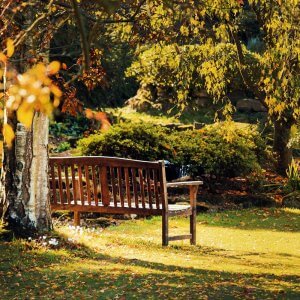



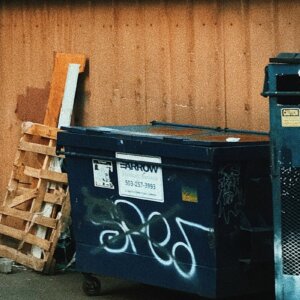

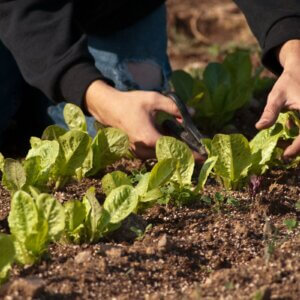

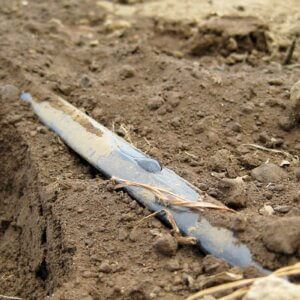
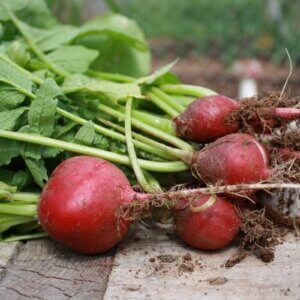







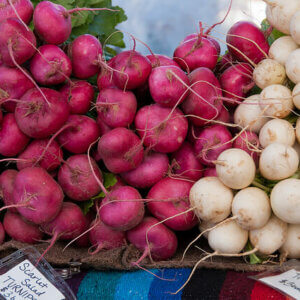



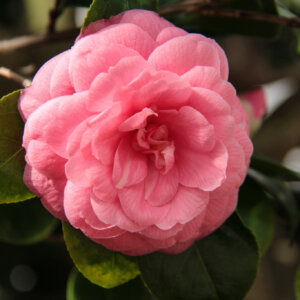


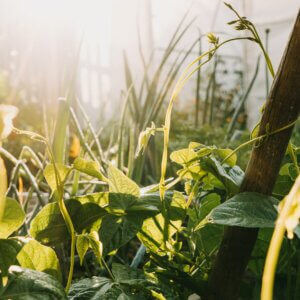

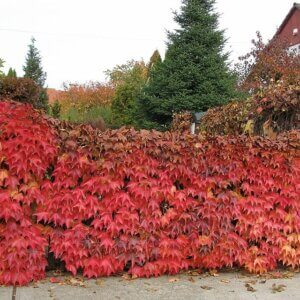





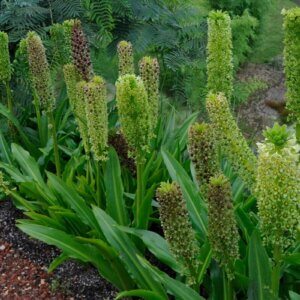

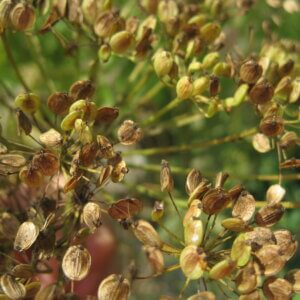
Leave a Reply